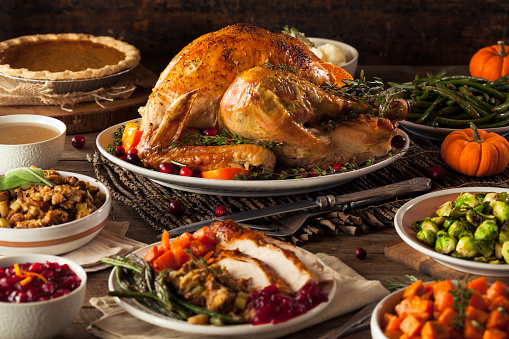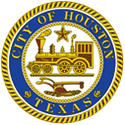Houston Fire Department
Thanksgiving Day Safety

Cooking Safety Tips:
- Always have a working smoke detector
- Never leave cooking food unattended
- Turn pot handles away from the front of the stove and never position them over another burnerfety
- Make sure pot holders are not too close to the stove
- Wear short sleeves or tight-fitting long sleeves
- Shield yourself from scalding steam when lifting lids from hot pots
- Keep broilers, ovens, stove tops and exhaust ducts free from grease
- If there is a fire in the oven-Turn off the oven and keep the oven door closed
- Use an ABC fire extinguisher, baking soda or a tight-fitting pot lid, never flour or water, to extinguish a kitchen fire
Turkey Fryer Safety Tips:
- Turkey fryers are extremely dangerous
- Always use turkey fryers outdoors away from anything that can burn
- Never use them on wooden decks or in garages
- Never leave the fryer unattended or let children or pets near the fryer
- The oil will remain dangerously hot hours after use
- Never overfill a fryer and make sure the turkey is completely thawed
- Keep an all-purpose fire extinguisher nearby. Never use water to extinguish the fire
You Will Need: In addition to a completely thawed turkey, you’ll need a 40 or 60 quart pot with basket or turkey frying hardware, plus a propane gas tank and burner, a candy/deep fry thermometer, a meat thermometer and lots of oil. Use oils that have a high smoke point, such as corn, peanut or canola oils.
Please, do not pour the turkey fryer oil down the sink! Fats, oils, and grease poured down the sink are the main cause of sewer overflows. Houston Public Works responds to twice as many sewer overflows during the holiday season due a significant increase of grease clogs. For information on where you can safely dispose of the oil (at no cost) please visit https://www.houstontx.gov/solidwaste/esc.html
As far as the turkey itself goes, smaller birds work better for frying. Try not to go over 15 lbs. Before You Fry- Please read and follow all manufacturers instructions.
These tips will help to prevent oil overflow: Before beginning, (and before you even season or marinate your turkey) determine the amount of oil you’ll need by placing the turkey in the basket (or on the hanger, depending on the type of fryer you are using) and putting it in the pot. Add water until it reaches about two inches above the turkey. Remove the turkey and note the water level by using a ruler to measure the distance from the top of the pot to the surface of the water. Remove the water and thoroughly dry the pot. Now add enough oil to equal what the water level was without the turkey in the pot.
Party Safety
Cigarettes can smolder for hours, starting a fire hours after the party guest have gone home. To help prevent such a tragedy, the NFPA recommends the following safety tips:
- Provide plenty of large, deep ashtrays, checking them frequently.
- Cigarettes can smolder in the trash, so completely douse them with water before discarding them.
- After a party, always check on, between and under upholstery and cushions inside trashcans for cigarette butts that may be smoldering.
- Keep matches and lighters up high, out of the reach of children. When smokers visit your home, ask them to keep their smoking materials with them so young children do not touch them.
Drinking: According to the National Highway Traffic Safety Administration, in on New Year's eve 2000, 40 percent of traffic accidents involved alcohol, resulting in 32 fatalities. Keep an eye on people who are drinking and make sure that they have a designated driver. Never let someone drink and drive.
Smoke Detectors: The silence of smoke detectors that do not work could be deadly! Make note that there are three types of detectors. 1) Ionization works faster in a flaming fire, 2) Photoelectric works faster in a slow smoldering fire and 3) Dual Sensor works as fast in either type of fire.
Location
- Wall mount (place 4 to 12 inches from the ceiling).
- Ceiling mount (place at least 4 inches from any wall).
- High pitch ceilings (place three feet from the highest point).
- Don't install near window, door, air register or ceiling fan.
- Place at least one smoke detector on each level (minimum of one detector outside each sleeping area).
Maintenance
- Change battery once a year or when making a chirping-like sound. We suggest you change the battery in the spring or fall when you change the time on your clock.
- Test smoke detector once a month.
- Vacuum the vents in the detector at least once a year.
- Always follow the manufacturer's recommendations.
- The National Fire Protection Association recommends that you replace your smoke detector every ten years.
- CHECK YOUR BATTERY! According to the National Fire Protection Association, 92 percent of all homes in America have smoke detectors installed. However, over one third of these do not work. A dead or missing battery is the primary cause of smoke detector failure
For Additional Holiday Safety Tips Visit our Holiday Safety Tips at http://houstontx.gov/fire/safetyinfo/HolidaySafety.html

